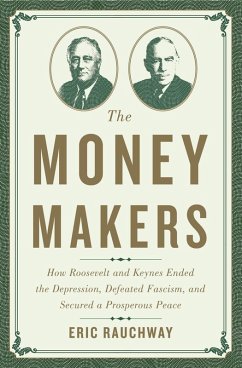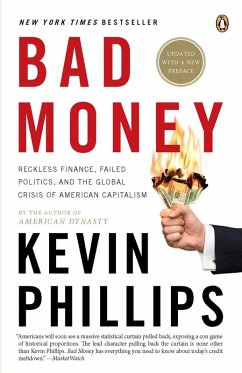
Working for Debt (eBook, ePUB)
Banks, Loan Sharks, and the Origins of Financial Exploitation in the United States
Versandkostenfrei!
Sofort per Download lieferbar
25,95 €
inkl. MwSt.
Weitere Ausgaben:

PAYBACK Punkte
13 °P sammeln!
In the early twentieth century, wage loans became a major source of cash for workers all over the United States. From Black washerwomen to white foremen, Illinois roomers to Georgia railroad men, workers turned to labor income as collateral for borrowing capital. Networks of companies started profiting from payday and property advances, exposing debtors to the grim prospects of garnishments of their wages and possessions in order to mitigate the risk of default. Progressive and later New Deal reformers sought to eradicate these practices, denouncing "loan sharks" and "financial slavery" as maj...
In the early twentieth century, wage loans became a major source of cash for workers all over the United States. From Black washerwomen to white foremen, Illinois roomers to Georgia railroad men, workers turned to labor income as collateral for borrowing capital. Networks of companies started profiting from payday and property advances, exposing debtors to the grim prospects of garnishments of their wages and possessions in order to mitigate the risk of default. Progressive and later New Deal reformers sought to eradicate these practices, denouncing "loan sharks" and "financial slavery" as major threats to a new credit democracy. They proposed fair credit as a universal solution to move past industrial poverty and boost consumer freedom-but in doing so, reformers, lenders, and bankers limited credit access to the white middle-class constituencies seen as worthy of protection against extortion.
Working for Debt explores how the fight against wage loans divided the American credit market along class, race, and gender lines. Simon Bittmann argues that the moral and political crusades of Progressive Era reformers helped create the exclusionary credit markets that favored white male breadwinners. The politics of credit expansion served to obscure the failures of U.S. capitalism, using the "loan shark" as a scapegoat for larger, deeper depredations. As credit became a core feature of U.S. capitalism, the association of legitimate borrowing with white middle-class households and the financial exclusion of others was entrenched. Blending economic sociology with business, labor, and social history, this book shows how social stratification shaped credit markets, with enduring consequences for class, race, and gender inequalities.
Working for Debt explores how the fight against wage loans divided the American credit market along class, race, and gender lines. Simon Bittmann argues that the moral and political crusades of Progressive Era reformers helped create the exclusionary credit markets that favored white male breadwinners. The politics of credit expansion served to obscure the failures of U.S. capitalism, using the "loan shark" as a scapegoat for larger, deeper depredations. As credit became a core feature of U.S. capitalism, the association of legitimate borrowing with white middle-class households and the financial exclusion of others was entrenched. Blending economic sociology with business, labor, and social history, this book shows how social stratification shaped credit markets, with enduring consequences for class, race, and gender inequalities.
Dieser Download kann aus rechtlichen Gründen nur mit Rechnungsadresse in A, D ausgeliefert werden.












